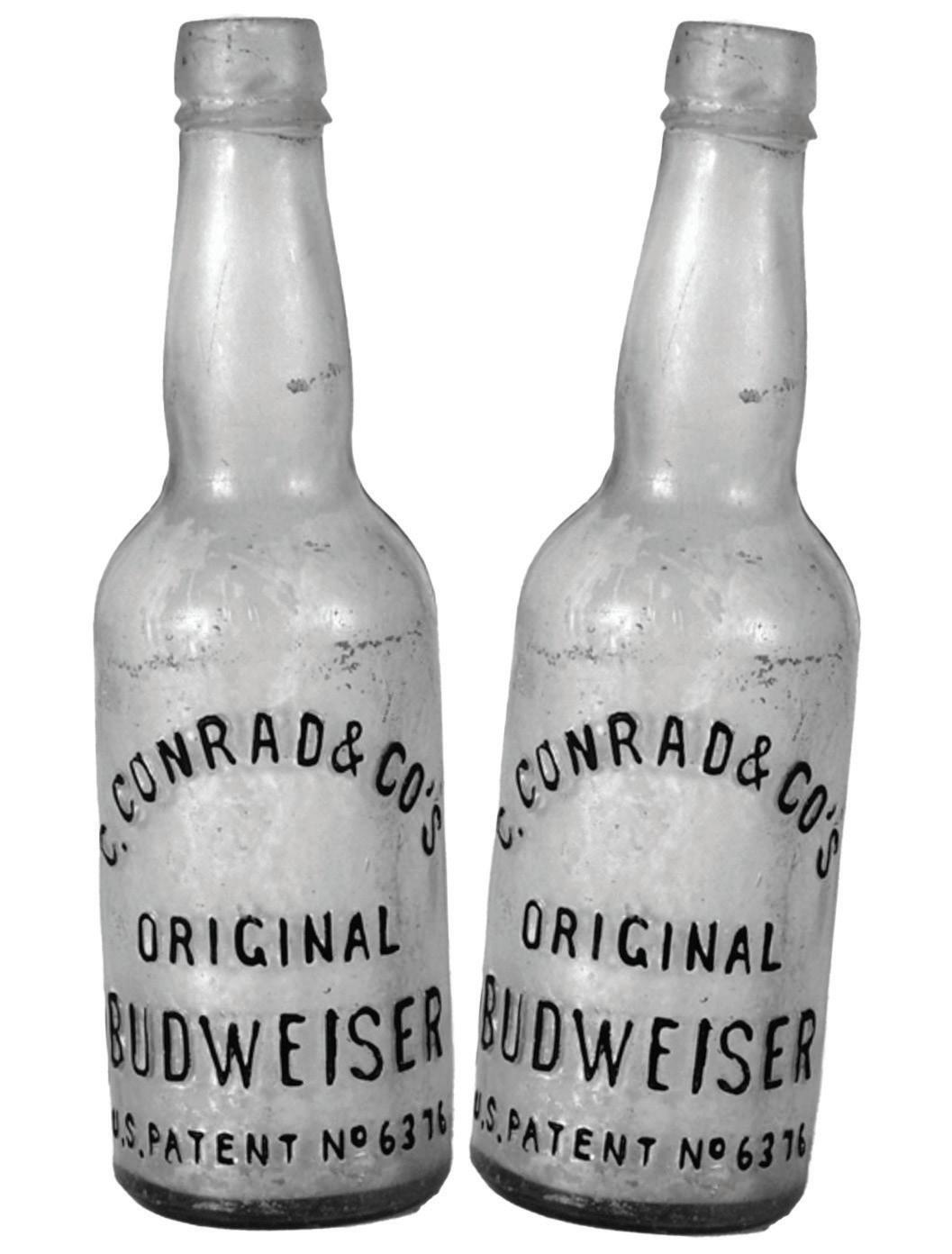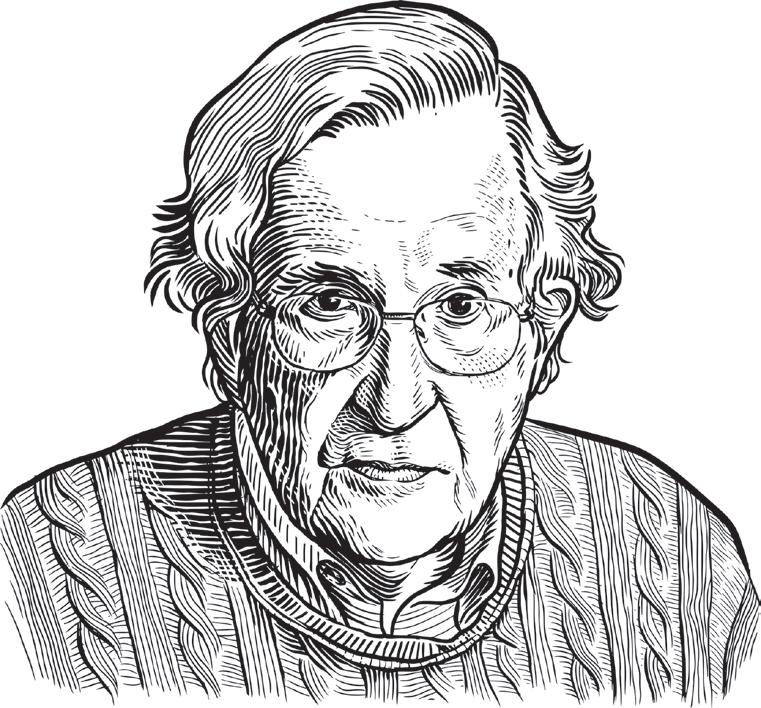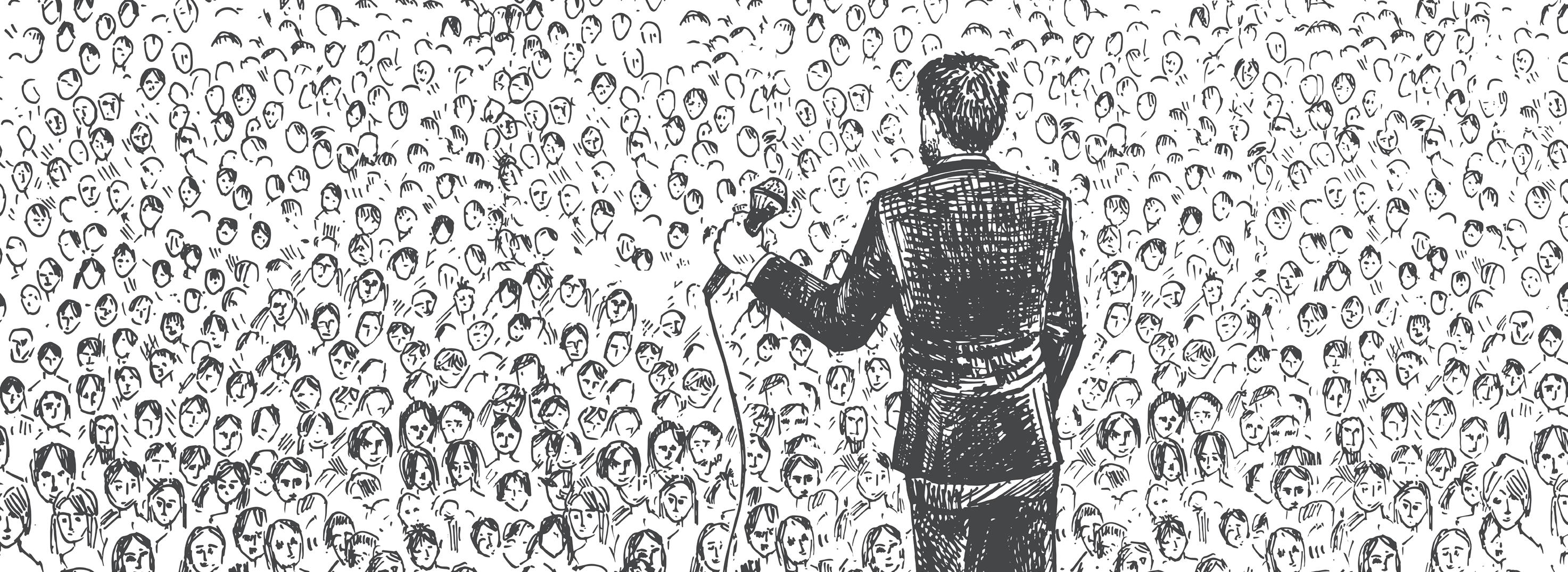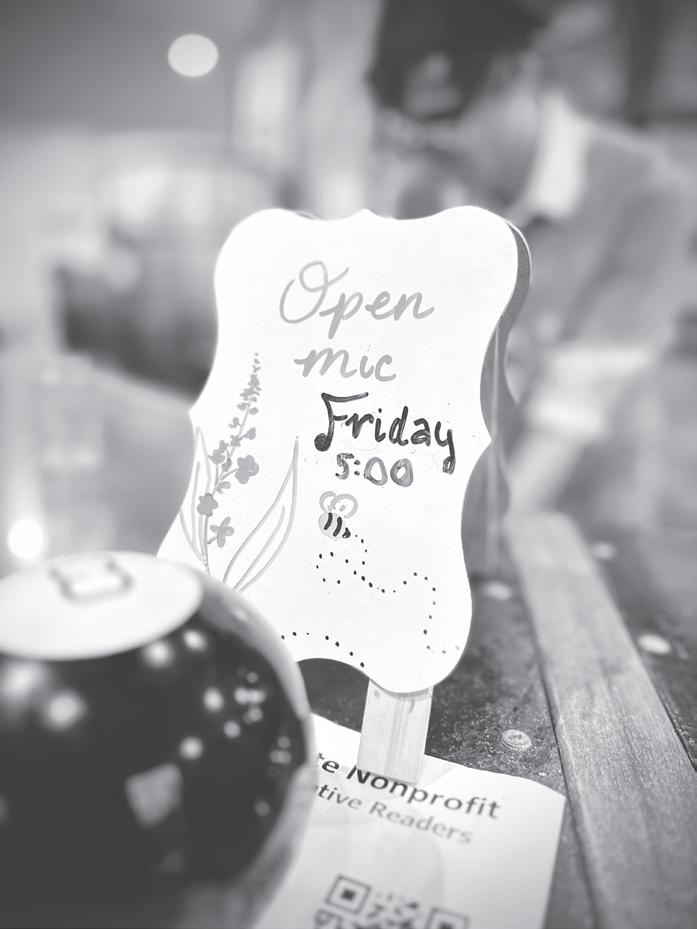Liberty, Liberally
Song Lyrics: Greener Grass
Written by Joshua Fryfogle, 1996 and 1997I’ve
But the grass looks greener

I’ve
But the grass looks greener
you can’t add anything to the conversation? If you can’t introduce a new perspective, because the media has so clearly divided the conversation into two camps where everyone just keeps repeating the talking points that they’ve literally been programmed to repeat, then what’s the point?
And the grass looks greener
There are certain controversies that we’re allowed and encouraged to be upset about. The corporate media and the powers-that-be all agree that certain controversies are worthy of attention, while others must be ignored.
For example, the Bud Light controversy, or Drag Queen Story Time. The first being about trans people, the second about drag performers (these phenomena are not the same thing, by they way), both of these controversies are contrived. Companies can even profit from these controversies. Since these two issues are allowed and encouraged to be broadly discussed and debated, the corporate media are able to parlay that into big bucks. More importantly, these controversies serve to distract from other controversial topics that we might discuss if we weren’t being led around by our noses.


Locked up in confusion
Paranoid delusions
I just want to know what’s so important
About the other side of the fence
What’s so damn important
Sometimes you just have to fly away
Like an eagle on a cloudy day
Forget all about your past
And lay your head on some greener grass
But you don’t want to ever let me know
So I don’t want to ever let it go
These controlled controversies are lost causes. Because they are controlled and contrived, pushed on us relentlessly by media corporations, because the social media algorithm favors that content, there’s really no point in engaging in them at all. You truly can’t add anything to those conversations, you can only repeat what has already been said.
As a rule, I avoid these types of topics in my own writing. These are the controversies that are so well-developed and controlled that it’s impossible to introduce any nuance to the conversation. The dividing line has been so well-defined that you have to choose one side or the other of the contrivance to even engage with the topic at all. This is what pushes me away from engaging on these types of topics. What good is public discourse if
I don’t shy away from controversy, mind you. I’m not afraid of upsetting people, if they need to be upset. My writing is primarily a means for me to say something that I don’t hear said often, or at all. Sometimes that upsets people, and that’s good. That’s why I write, to say something - anything! - new. These controlled and contrived controversies don’t allow for that. It’s impossible to break the spell that is cast on these approved topics of debate.
They are easy to identify, though. These pretend problems are amplified by the media corporations, all of which say the same things over and over. And when you hear people saying those same lines, as if by rote, then you know. I look for these tell-tale signs and avoid those topics - unless I think I can slip in some nuance that will disrupt the bullshit. That’s what I’m doing now; that’s why I’m writing this essay in particular, and why I’m talking about these things at all.
Ask yourself, the next time you get mad about things like this, “what else might I apply my righteous indignation towards if it weren’t for this manufactured conflict?” It’s not that these conversations can’t be had, or shouldn’t be had. I’m not even saying that these controversies lack substance. Both sides of these clearly-divided debates are likely passionate about them because the consequences are real. However, you have to wonder what good you can do, if you aren’t allowed to say anything new. And if you’re just repeating what you’ve heard elsewhere, and everyone is either agreeing with that talking point, or angry and saying the opposing talking point, don’t you see how you’re helping to amplify the issue above other, more important issues?
We suffer from information overload here in the West. In the US, the average individual consumes massive amounts of information, much of which is reduced down to soundbites. However, we are largely ignorant of the most important issues of which these controlling corporations would prefer we remain ignorant.
This is an old game. Yellow Journalism was created when corporate interests took over the newspaper industry about 80-90 years ago. The idea was to control the conversation, using salacious and fallacious language, to distract people from the ongoing corporate takeover of our nation. It has never stopped, this constant centralization of control. It is the design of corporations to continue to incorporate more and more. This is done by affecting us, the People, to behave as drones instead of individuals who affect the public discourse. When we, the People, add nuance to the conversation, that’s when we are being free. That’s when we are self-governing. And when we are repeating the controversies that are served to us by corporate interests, choosing between the false choice of left and right constantly, we are hopelessly enslaved, and governed by corporate interests.
“The smart way to keep people passive and obedient is to strictly limit the spectrum of acceptable opinion, but allow very lively debate within that spectrum - even encouraging the more critical and dissident views. This gives people the sense that there’s free thinking going on, while all the time the presuppositions of the system are being reinforced by the limits put on the range of the debate.” - Noam Chomsky

Open mics and jam sessions have a powerful purpose in a free society, and they always have.
Open mic events have a long and varied history, rooted in the traditions of live performance and public speaking. The concept of an "open mic" (short for "open microphone") is this: a venue provides a microphone and stage, and individuals sign up to perform for a short period, usually a few minutes each. Performances can range from music and poetry to comedy and storytelling.
The “open mic” format likely started in the folk music scene of the mid-20th century, particularly in the United States and the UK. It offered a platform for emerging artists to perform and gain experience. Over time, open mics expanded to include other genres like comedy, spoken word, and even rap battles.
The format is often seen as an egalitarian space, offering opportunities regardless of one's level of experience or fame. It serves as a testing ground for new material, a space for community building, and sometimes even a launching pad for careers in entertainment.
Before the advent of electricity and amplification, the precursors to modern open mic events could be found in various forms of public gatherings and performance traditions. For instance, the concept of a "soapbox" or "speaker's corner" were early forms of public spaces where individuals could voice their opinions, sometimes improvisationally.
In ancient times, public forums and amphitheaters served as platforms for poets, orators, and musicians to showcase their talents. In medieval Europe, town squares often hosted minstrels, jesters, and other performers. These were the public stages of their day, and they allowed for a mix of both political discourse and artistic performance.
Coffee houses in the 17th and 18th centuries, particularly in England and France, served as venues for political discussion, poetry readings, and even musical performances. Town hall meetings and other community gatherings also offered spaces where people could speak their minds on various issues, and these could sometimes include musical or poetic interludes.
The Chautauqua circuits were a uniquely American phenomenon that gained popularity in the late 19th and early 20th centuries. Originating from the Chautauqua Institution in New York,
these circuits became a traveling educational and entertainment movement aimed at providing rural communities with access to lectures, performances, and cultural enrichment. The concept was to offer a "traveling lyceum" that would bring an array of speakers, educators, musicians, and entertainers to towns that otherwise had limited access to such events.
Chautauqua tents or pavilions would be set up, and over the course of several days, a program would unfold that could include religious sermons, scientific lectures, orchestral performances, plays, and debates. It was a comprehensive effort to educate and engage the American public through public gatherings; all of this was protected by the First Amendment’s connected clauses.
The Chautauqua circuits were immensely popular during their heyday, and they played a significant role in American adult education and cultural co-creation. They brought together elements of both civic engagement and artistic performance, much like open mic events and town halls do today, but on a larger and more organized scale. With the advent of new forms of entertainment and education, like radio and eventually television, the traditional Chautauqua circuits waned in popularity but their legacy as a communal space for learning and cultural enrichment endures.
In American history, the Chautauqua circuits provided forums for both educational lectures and artistic performances. These events were precursors to the more specialized venues we see today, like comedy clubs or music venues dedicated to open mic nights.
So, while the term "open mic" and the technology behind it may be relatively modern, the impulse to gather and share ideas and art in a public setting is ancient. The basic human desire to express and share has always found a way, with or without a microphone.
Free expression is a cornerstone of both civic engagement and artistic endeavor. In democratic societies, the right to speak freely is vital for political discourse, enabling citizens to debate, critique, and influence public policy. Similarly, artistic expression often relies on the freedom to explore ideas, emotions, and perspectives without undue restriction.
This overlap can be particularly powerful because art can serve as a medium for political and social commentary. Works of art can provoke thought, challenge societal norms, and inspire action in a way that complements more traditional forms of civic participation like voting or attending town meetings.
In the same vein, political events or movements often incorporate elements of artistic expression—be it through music, poetry, or visual art—to convey their message more effectively and resonate emotionally with people.
Open mic events serve as a microcosm of this overlap, offering a platform for both artistic and political expression, sometimes within the same evening or even the same performance. In this way, they encapsulate the interconnectedness of art and civic life.
An open mic event, as opposed to a town hall meeting, might be more suited to an artistic treatment of a dry, political topic. It can be used to draw attention subtly to something that otherwise might not be noticed. The informal and creative nature of an open mic event can make complex or dry topics more accessible and engaging. Artists can use storytelling, humor, music, or other forms of expression to humanize issues that might otherwise seem abstract or distant. This emotional connection can make the political subject matter more relatable, spurring people to think more deeply about it.
By presenting topics in an artistic format, performers can also bypass some of the polarization or preconceived notions that often accompany political discussions. Art has a way of cutting through these barriers to touch on our shared humanity, making open mic events a unique platform for subtle yet impactful social or political commentary.

When we express these ideas in a thoughtful and creative way, rather than rhetoric and polemics, we build a connection within the community. Humans empathize with each other through art, while political speech on its own can be divisive. The power of art lies in its ability to transcend the barriers that divide us in political or ideological debates. Artistic expression taps into universal emotions and experiences, allowing for a shared understanding that can be more unifying than divisive. When political or social issues are presented through the lens of art, they can be humanized and contextualized in a way that invites empathy rather than opposition.
This quality makes open mic events and other artistic platforms particularly valuable for community building. They offer a space where people can come together to experience different perspectives, not as combatants in an argument, but as fellow human beings engaged in a shared journey of understanding. In this way, art serves as both a mirror and a bridge—reflecting our own experiences while connecting us to the experiences of others.
- and even special publications and other things that might fit in a Manila envelope!
CHECK OUT THESE LOCAL OPEN MIC AND JAM EVENTS:
203 Kombucha
Every Friday, 5pm - 7:30pm

Palmer, AK
Klondike Mike's and The Main Street Grill
Palmer, AK
Tuesday, sign ups at 7pm, show at 8pm
Hosted by Sabrina Speers
AK Acoustic Project presents Open Mic Night at Houston Lodge
Wednesday, 7pm - 10pm
Schwabenhof
Wednesday, Sign ups at 7:30pm, music from 8:00pm - 11:30pm
Susitna Brewing Company, LLC
Big Lake, aK
Sunday, 6pm - 9pm
Hosted by Tamara Ashburn
Black Birch Books
Wasilla, AK
Last Friday of the month 7pm - 9pm
Fishhook Bar and Grill
Hatcher Pass, Palmer, AK
Thursday
Open Jam with back up band (Starts back September 28th)
7 - 10 pm
Hosted by Jerry Wessling
Fairview Inn
Talkeetna, AK
Wednesday, 9pm until it’s over
We’ve gotten a surprising number of donations from community members at The People’s Paper and Make A Scene Magazine over the years, and recently it’s increased with the publication of Liberty, Liberally. We’ve also received many requests for subscription services, requests
to mail Liberty, Liberally, and our other publications to people near and far...
So we thought, why not make it easier to donate, and get something in return, too?
With a minimum $8 per month donation, you’ll receive a copy of each publication
Thanks so much for your words of encouragement and financial support over the years. We take your trust very seriously, as we steward content from you and your neighbors onto the printed page. It’s an American tradition which we are blessed to uphold. Call 907-373-2698 for more information on how to support!